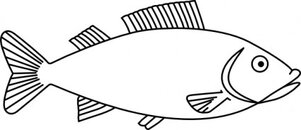What you found out is that specialties do have value. If the instructor has the skills, knowledge, experience, and initiative to teach them in such a way as to make them valuable. Many do not. They have a specialty instructor manual from the agency with minimums that they have to adhere to. Most are pretty pathetic. The ones that are not are often authored by an instructor for whom the subject is not just an interest but a true passion. And their standards for the course make the official agency one look like kindergarten basics.
LOL. Well, Jim, your passion is undeniable, but I guarantee you that perfectly good specialties can be given if the instructor doesn't write the material themselves. You're right that specialties are one of the areas where the instructor's own interest and passion can make a huge difference to results; however, writing ones own materials is reinventing the wheel at best.
The standards, for the benefit of people who can only guess what's in them, is a description of the end result the agency is looking for a set of boundaries that the instructor should adhere to. It's a checklist. It's the instructor's job to take that list and craft a worthwhile (hopefully educational AND fun) course from it.
In other words, the agency gives you this:

and the instructor uses it to make this:

The fact that (unfortunately) some instructors end up creating this:

is, sadly, a fact of life and is a major source of irritation to instructors like Jim (and many others) who put a lot of effort and pride into their results. It is not, however, the fault of standards, it's the fault of delivery. Scuba instruction is people work and just like no two artists are the same, no two instructors' courses will be identical. There can be a lot more variation than people think.
R..
Last edited:



